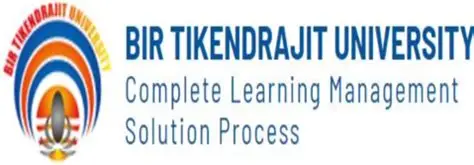Editing / Proof Reading
Editing and proof Reading are essential stages in the thesis writing process, ensuring that the document is clear, coherent, and free from errors. While editing involves a comprehensive review of the content, structure, and organization, proof Reading focuses on correcting grammar, spelling, and punctuation mistakes. Both processes contribute to the overall quality of the thesis.
Our team of editors can help the scholars in complete editing of their thesis or Dissertation. Many Research scholars do not have the time to go into all these details or have the knowledge of required professional writing styles and formatting rules. We can improve your dissertation by making corrections like language, typo errors, sentence structure etc.
Below are some editing services offered:-
1. Proof Reading :-
This is a basic service caters to minor mistakes like typographical errors, syntax errors etc.
2. Standard Editing :-
This type of editing covers all errors be it grammatical, structural or citation errors.
3. Rewriting :-
Under this we will do the rephrasing of the content written by you, keeping same value to the research work, but improvised content.
4. Formatting :-
In this, we shall do the formatting as per the guideline of University.
5. Plagiarism check :- We will check the plagiarism and provide a report using turnitin software.
6. Plagiarism removal :-
We will work on removing plagiarism after we have the report.
7. Corrections Work :-
Under this, we shall take care of all the comments which you must have received from the University.
Here are some key considerations for editing and proof reading in thesis writing:
Editing:-
Content and Organization:
- Ensure that the thesis has a clear introduction, body, and conclusion.
- Check the logical flow of ideas and transitions between sections.
- Verify that each paragraph has a clear topic sentence and supports the main thesis.
Clarity and Conciseness:
- Simplify complex sentences for clarity.
- Eliminate redundant or repetitive phrases.
- Ensure that each word contributes meaning to the text.
Thesis Statement:
- Confirm that the thesis statement is clear, specific, and aligns with the research objectives.
- Ensure that each chapter and section contributes to supporting the thesis.
Consistency:
- Check for consistency in formatting, citation style, and terminology.
- Confirm that headings, subheadings, and numbering follow a consistent format.
Academic Tone:
- Maintain a formal and academic tone throughout the thesis.
- Avoid colloquial language or overly complex vocabulary.
Citations and References:
- Verify that all sources are properly cited within the text.
- Check the accuracy and completeness of the bibliography or reference list.
Figures and Tables:
- Ensure that figures and tables are appropriately labeled and referenced.
- Check for consistency in formatting across all visual elements.
Proof Reading:-
Grammar and Syntax:
- Correct grammatical errors, including subject-verb agreement, verb tense, and sentence structure.
- Verify that each sentence is grammatically sound.
Spelling and Punctuation:
- Check for spelling errors using a spell-check tool.
- Manually review punctuation, ensuring correct usage of commas, periods, semicolons, and other punctuation marks.
Typos and Formatting:
- Identify and correct typographical errors or inconsistencies in formatting.
- Ensure proper font, spacing, and indentation throughout the document.
Abbreviations and Acronyms:
- Confirm the correct usage and definition of abbreviations and acronyms.
- Ensure that each abbreviation is spelled out upon first use.
Word Usage:
- Check for misused words or homophones (words that sound alike but have different meanings).
- Verify that the intended word is used in context.
Consistency in Style:
- Maintain consistency in the use of American or British English, as well as adherence to the chosen style guide.
Page Numbers and Headings:
- Confirm that page numbers and headings are accurate and consistent.
- Check for proper alignment and formatting of section headings.
Editing and proofreading are iterative processes, and it's advisable to go through multiple rounds to catch all potential errors. These stages contribute significantly to the overall professionalism and clarity of a thesis, demonstrating the author's commitment to academic excellenc
Our Blogs
Thesis Module
Thesis Formation




















